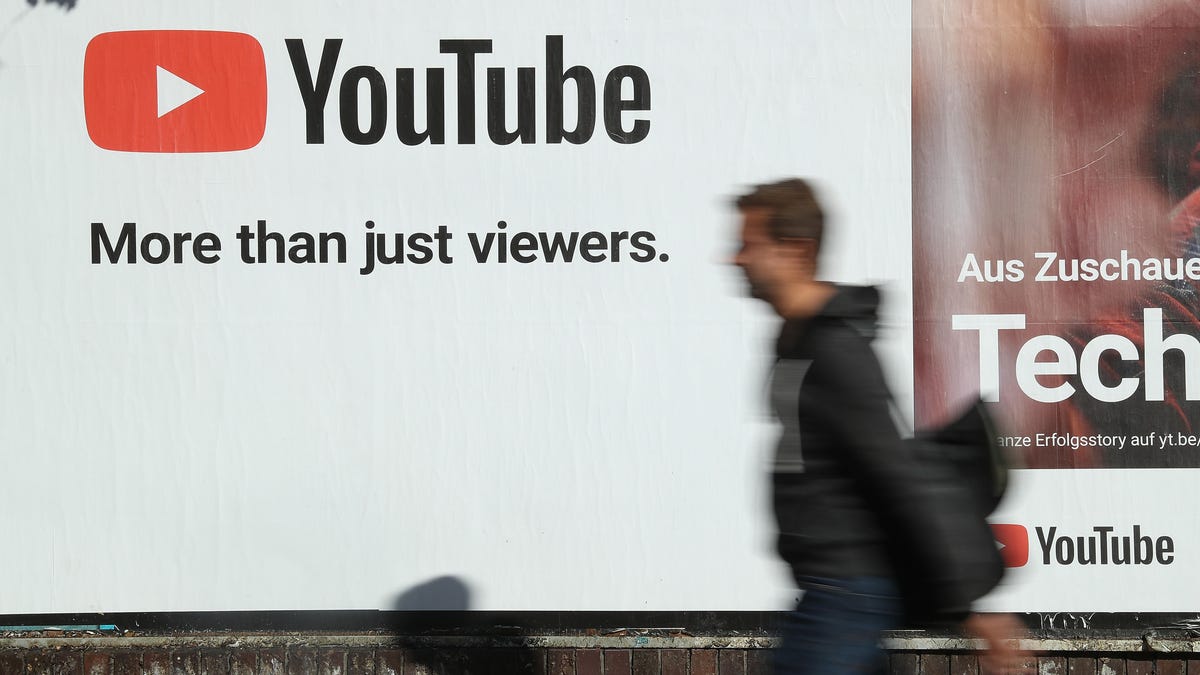YouTube cracks down on stream-ripping sites that pirate music
The site's new copyright-protection measures have caught the eye of a congressional committee chairman and the recording industry.

YouTube is the world's biggest online video source, with 2 billion logged-in viewers visiting monthly.
YouTube has caught the attention of a high-level congressional office interested in its copyright-protection practices, an inquiry that comes as the massive video site cracks down on stream ripping, a type of music piracy. Stream ripping swipes audio tracks off YouTube videos and spits them out as MP3 downloads.
The office of the House Judiciary Committee chairman, Rep. Jerrold Nadler of New York, reached out to Google late last week about YouTube's actions on stream ripping because of his longstanding interest in quashing piracy , according to a person familiar with the matter. A second industry source said content protection organizations outside the US have been working to verify whether YouTube has been putting new measures in place to block stream ripping.
YouTube declined to comment on whether it had been contacted by Nadler's office but confirmed it has elevated its blocking of stream-ripping sites, which violate its terms of service. YouTube is the world's biggest online video source, with 2 billion logged-in visitors every month.
"As part of our ongoing efforts to enforce YouTube's terms of service, we're constantly making improvements and one of the recent changes resulted in the blocking of some MP3 stream ripping sites," YouTube said in a statement. "It's our desire to be good partners to our content licensors as our interests are aligned on thwarting violative downloads and downloader sites."
Nadler's office didn't offer a comment.
The music industry has long griped about suffering collateral damage from YouTube's massive scale and influence. Stream-ripping piracy -- which circumvents YouTube encryption to morph music from a streamed video into a download you can listen to offline for free -- has worried the music industry as it has grown. It's one of several complaints that recording companies, artists and others have about the Google-owned video giant.
Though stream ripping isn't limited to YouTube, Google's service is the biggest single source of music online. YouTube provides more music listening than Spotify, Apple Music and every other paid streaming service combined.
But to the music industry's longstanding irritation, YouTube generates a fraction of the revenue that those subscription services do. Last year in the US, paid subscription services brought the recording industry $4.66 billion in revenue. Ad-supported streaming, where the streaming occurs primarily on YouTube, was only $760 million.
The US recording industry's trade group is cheering YouTube's latest moves.
"While we do not yet know how effective these new measures are, we applaud YouTube for taking affirmative steps towards shutting down the fastest growing form of music piracy," Mitch Glazier, the head of the Recording Industry Association of America, said in a statement. "Illegal stream-ripping is a threat to creative artists, licensed music services, and fans, and shutting it down at its source is one of the most effective tools to protect legitimate streaming services. It's vital that everyone in tech and music work together to stop it."
YouTube ratcheted up the blocking last week. YouTube's new measures against stream ripping were earlier reported by piracy publication Torrent Freak.
The latest enforcement measures come as regulatory scrutiny of both Google and YouTube hit new intensity. The Federal Trade Commission is investigating claims that YouTube broke laws protecting children's privacy, and the Department of Justice reportedly is building an antitrust case against Google. Congress has embarked on a parade of hearings and inquiries about anticompetitive concerns at Google, YouTube and their peers.
Nadler's outreach to YouTube came days before the House Judiciary Committee grilled Google about whether it's a monopoly. Apple, Facebook and Amazon faced the same treatment.

